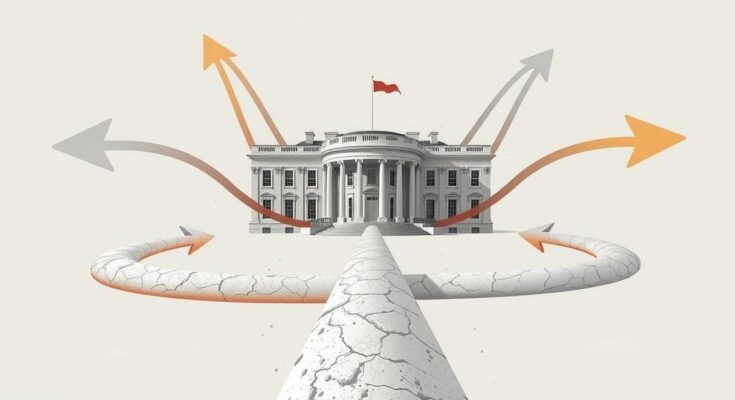President Umaro Sissoco Embalo of Guinea-Bissau announced he will run for a second term in November, contrary to his earlier pledge to step down. The announcement raises tensions over the end of his current term, with conflicting views from the opposition and the Supreme Court. Elections have been postponed to November 30 due to financial issues, prompting dissatisfaction among political parties. Embalo, a former general, faces a complex political landscape amid coup attempts during his presidency.
Umaro Sissoco Embalo, the President of Guinea-Bissau, announced on Monday that he will seek re-election in November, contradicting his previous promise to step down. The decision may escalate tensions regarding the end of his current term, which his opposition claims expired in February, while the Supreme Court asserts it continues until September 4, 2025.
Following his visits to Russia, Azerbaijan, and Hungary, President Embalo declared, ‘I will be a candidate in my own succession.’ He has faced conflict with political factions over election timings, especially after he postponed the elections to November 30, citing financial and technical challenges that disrupted the electoral calendar. Initially planned for November 2024, these delays result in increased dissatisfaction among the political rivals he must engage with in upcoming discussions.
Embalo, aged 52 and a former army general, took on the challenging political landscape of Guinea-Bissau, marked by a history of coups since its independence in 1974. He indicated that there have been two unsuccessful coup attempts against him during his time in power, the most recent occurring in December 2023. Previously, Embalo mentioned that his spouse had persuaded him not to pursue a second term.
In summary, President Umaro Sissoco Embalo’s announcement to seek a second term signifies a shift from his earlier commitments and may intensify political disputes in Guinea-Bissau. The ongoing contention surrounding the official end date of his current term adds to the complexity of the electoral situation, raising concerns as the country navigates its troubled governance history during his presidency. His intentions to engage with political parties before formal procedures suggest a potential effort to stabilize the political playing field ahead of upcoming elections. These developments warrant close observation as Guinea-Bissau approaches a critical electoral period.
Original Source: eastleighvoice.co.ke




